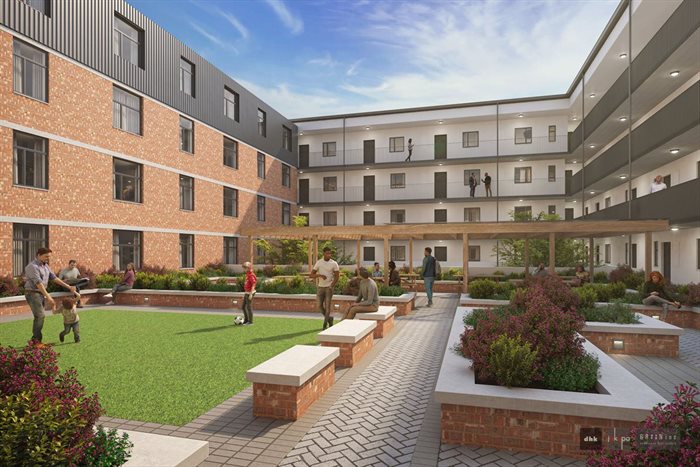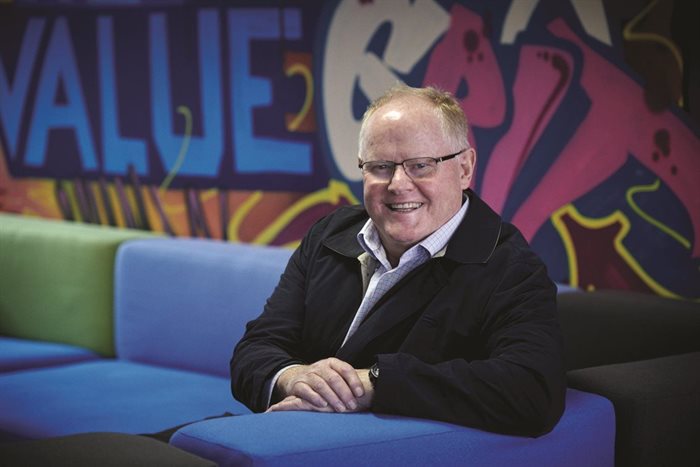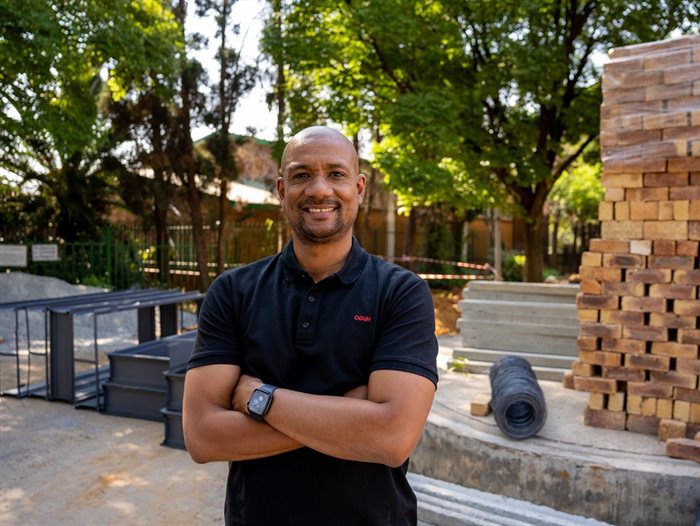
Related
Top stories





Energy & MiningGlencore's Astron Energy gears up with new tanker amidst Sars dispute
Wendell Roelf 13 hours

More news

















Logistics & Transport
Uganda plans new rail link to Tanzania for mineral export boost











The organisation believes that urban densification has great potential to stimulate inclusive economic growth and aims to create affordable rental housing where it’s needed most, bringing people into the cities and closer to work, education and play.
TUHF provides financial services to property entrepreneurs in urban areas looking to grow their property portfolios, generate wealth, and contribute to urban regeneration.
In this #PropertyRevamped feature, Paul Jackson, CEO of TUHF, shares with Bizcommunity more about the company's impact over the last 20 years, how it supports property entrepreneurs in growing their business, and how it's ensured its finance options are accessible.

Since inception, TUHF has financed R7.1bn and 47,364 affordable rental housing units across more than 734 buildings. It has increased its footprint to seven offices in five provinces and grown its loan book to R3.347bn currently. At the end of our 2022 financial year, TUHF had empowered over 336 property entrepreneurs, of which 254 are female and 245 are from previously disadvantaged backgrounds. And it had created 339 jobs. And those are just the numbers.
TUHF also brought a number of firsts into the property market over the last 20 years. The Inthuthuko Equity Fund (IEF) was established in 2004. It is a unique financial instrument that enables previously disadvantaged individuals who would otherwise be excluded from property investments to purchase, renovate, convert, or build new residential rental stock and then hold and manage these as a rental portfolio over time.
IEF provides mezzanine finance that helps entrepreneurs meet the upfront equity requirements to access mortgage finance, increasing the number of entrants into the property market.
TUHF created uMaStandi in 2015 – the first specialised property financing company that provides commercial mortgage finance, training, mentorship and guidance to property entrepreneurs investing in township areas.
It also launched South Africa’s first Sustainable Bond Framework in 2020, which allows TUHF and its associated special purpose vehicles to issue sustainable, green and social bonds that support lending to green projects and social projects.
The rapidly increasing urban sprawl experienced in developing countries like South Africa has a massive negative impact on the economy, the environment, and the people living there. In South Africa, there are also challenges around housing shortages and how RDP housing has been implemented to consider.
Although RDP housing forms an important aspect of accessibility to safe living conditions, these developments often have a net negative fiscal impact. They require additional services and ancillary infrastructure development in areas that have none, and people living in these developments often struggle to pay for services such as utilities, rates, and taxes.
In contrast, a certain level of urban densification is necessary for economic and social action. It contributes to economic development at a micro level, which is by its nature inclusive.

TUHF has always been committed to investing in urban regeneration and densification, and developing safe, quality and affordable rental housing is crucial to this. It allows people to move into the cities - closer to work, education, healthcare services, amenities such grocery stores, and entertainment - and, in so doing, not only improves the quality of their lives but also stimulates inclusive growth in these micro economies.
It’s a misnomer, though, that TUHF focuses exclusively on inner cities. Rather, it offers specialised finance for affordable housing in urban areas, which includes townships and urban areas outside of CBDs that offer opportunities for property entrepreneurs to grow successful affordable rental housing businesses.
TUHF’s people are as passionate about the projects it finances as the entrepreneurs the company funds. They share their entrepreneurial capability and their specialist knowledge of TUHF’s areas of finance every step of way to help entrepreneurs succeed in growing their businesses.
In addition, the TUHF Programme for Property Entrepreneurship (TPPE) is a comprehensive in-house property training programme that seeks to promote the expansion of knowledge of TUHF’s clients as well as non-clients in property.
Developed and delivered jointly by TUHF and the University of Cape Town (UCT), the TPPE is customised for affordable rental housing developers and its focus is on sharpening skills and knowledge of the industry and an interchange of ideas with fellow clients. It has become well-known as a premier property education programme, attracting property entrepreneurs outside of TUHF’s client base as well.

A critical difference between TUHF and other mortgage financiers is the fact that TUHF is less traditional in the ways in which it determines investment potential. Some of its most successful and longest-standing clients have limited formal education, for example, and certainly didn’t have much by way of financial means when they first approached TUHF.
TUHF looks more at the entrepreneur’s character and commitment, their street smarts and understanding of their investment neighbourhood than it does at their qualifications on paper or their bank balance.
TUHF believes that the power of local knowledge is a strong indicator of potential. When it engages with potential clients, it does have to comply with regulations for lending, but it also asks: Does this entrepreneur know the service providers in the area that can help make their project a reality? Do they know the area itself and understand the needs of the community living there? Do they demonstrate a commitment to hard work and show common sense? Do they have an entrepreneurial spirit and awareness of risk and how to mitigate it?
TUHF’s whole approach is geared towards creating access to opportunity for those who would not otherwise be able to enter the market. It starts from the moment TUHF begins to evaluate an application by looking beyond the entrepreneur’s financial standing and other traditional lending parameters to their potential to build a successful business.
TUHF’s IEF offering brings liquidity to entrepreneurs and helps transform the complexion of property ownership. There are so many well-skilled entrepreneurs who have knowledge of TUHF’s identified areas of finance and have identified valid commercial opportunities. Their challenge is getting the funds necessary to access full commercial mortgage finance, which IEF helps to overcome.

With every successful rental housing development we fund, we create employment, stimulate spending, contribute support for small businesses, and in so doing, grow local micro-economies in an inclusive way.
We encourage mixed-use developments, recommending that our clients should check if their zoning and permissions from the relevant municipalities allow them to add a small business to their designs – a spaza shop, a hair salon, a laundromat, a crèche and so on. In this way, we have financed 194,732m2 of commercial retail space since inception.
As an example of the impact this creates, we have financed three such developments in Soweto through uMaStandi. Anecdotally, the clients who have implemented the mixed-use approach have indicated that the spaza shops they have included in their buildings are profitable.
Bayside Lodge, located at 59 Green Street, North End in Gqeberha, is a good recent example. Jade Barkhuysen and his team took on the challenge of converting an old commune with 19 bedrooms into 17 efficient studio apartments. The apartments range from 14-25m2, and each has its own bathroom (with shower, basin and toilet) and kitchenette.
Bayside Lodge offers tenants prepaid electricity and water meters to allow them to manage their own utilities expenses more effectively. The property includes a communal laundry facility which is open to all the residents, who are primarily young professionals between the ages of 21 and 35.
In response to the critically low water levels in the area, all the taps and showerheads in the bathrooms have low-flow fittings. Solar power is also on the cards for the development within the next 6-12 months, once it is fully leased and generating the requisite cash flow.
As well as offering access to commercial property development loans TUFH also provides support, guidance, and risk management for new property entrepreneurs. For more information, click here.
Running this July, #PropertyRevamped features innovative local developments that are shifting the industry forward.
